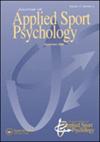Using a culturally humble approach to examine and address disordered eating in sport
IF 2.7
2区 心理学
Q2 HOSPITALITY, LEISURE, SPORT & TOURISM
引用次数: 0
Abstract
Abstract A paucity of research persists surrounding disordered eating among sub-populations of athletes with diverse identities. In this commentary, we argue that in the absence of extensive research to understand the nuances embedded in sub-populations of athletes, using a culturally humble approach is preferable and recommended in identifying and preventing disordered eating in athletes. Cultural humility is a powerful guiding framework for sport psychology professionals to navigate the underrepresented, “unheard voices” of disordered eating in sport. Specifically, engaging in the 5 Rs of cultural humility (Reflection, Respect, Regard, Relevance, and Resiliency) may help sport psychology professionals: a) become aware of and help reduce stereotypes that label certain athletes as disordered, and b) listen deeply to the individual experiences of the athlete while remaining aware of the inherent sport professional-athlete power imbalance. We offer recommendations based on current eating disorder research, gaps in this body of literature, and highlight recent publications on cultural humility for professionals to consider when addressing and preventing disordered eating concerns. Lay summary: Sport psychology professionals may benefit from a culturally humble approach to disordered eating in athletes. We acknowledge that more research needs to be conducted on disordered eating in athletes with intersecting identities. We propose that a cultural humility framework can inform a richer understanding of diverse presentations of disordered eating. Implications for Practice Enhance early identification of disordered eating and reduce instances of missed identification by engaging in a culturally humble approach to working with athletes Promote a sport culture that listens to the needs of individual athletes rather than focusing on body, weight, or appearance使用文化谦逊的方法来检查和解决体育运动中的饮食紊乱问题
摘要关于不同身份的运动员亚群体饮食紊乱的研究仍然很少。在这篇评论中,我们认为,在缺乏广泛研究来了解运动员亚群体中的细微差别的情况下,在识别和预防运动员饮食紊乱方面,使用文化谦逊的方法是可取的,并被推荐。文化谦逊是体育心理学专业人士驾驭体育运动中饮食失调的代表性不足、“闻所未闻的声音”的有力指导框架。具体而言,参与文化谦逊的5个R(反思、尊重、尊重、相关性和韧性)可能有助于体育心理学专业人员:a)意识到并帮助减少将某些运动员标记为无序的刻板印象,b)深入倾听运动员的个人经历,同时保持对体育专业运动员内在力量失衡的认识。我们根据当前的饮食失调研究、这一系列文献中的空白提出了建议,并强调了最近关于文化谦逊的出版物,供专业人士在解决和预防饮食失调问题时考虑。简要介绍:运动心理学专业人士可能会受益于对运动员饮食紊乱的文化谦逊态度。我们承认,需要对具有交叉身份的运动员的饮食紊乱进行更多的研究。我们提出,文化谦逊框架可以为更丰富地理解饮食紊乱的不同表现提供信息。对实践的启示通过在文化上谦逊地与运动员合作,加强对饮食紊乱的早期识别,减少错过识别的情况促进倾听运动员个人需求而不是关注身体、体重或外表的体育文化
本文章由计算机程序翻译,如有差异,请以英文原文为准。
求助全文
约1分钟内获得全文
求助全文
来源期刊
CiteScore
6.90
自引率
9.40%
发文量
39
审稿时长
>12 weeks
期刊介绍:
The Journal of Applied Sport Psychology (JASP) is a refereed journal designed to significantly advance thought, theory, and research on applied aspects of sport and exercise psychology. Submissions such as experimental studies, qualitative research, correlational studies, case studies, position papers, critical reviews, theoretical developments specific to applied research conducted in sport and/or exercise settings, or having significant applied implications to sport and exercise, are appropriate content for the JASP. Please see the recent Editorial for further details on the aims and scope of the journal. JASP is a non-proprietary journal that is an official publication of the Association for Applied Sport Psychology (AASP). The purpose of AASP is to promote the development of psychological theory, research, and intervention strategies in sport and exercise psychology. The Journal is a direct benefit of membership in AASP and is received by its student and professional members. The publisher of the JASP is Taylor and Francis, Inc. of Philadelphia, PA.

 求助内容:
求助内容: 应助结果提醒方式:
应助结果提醒方式:


